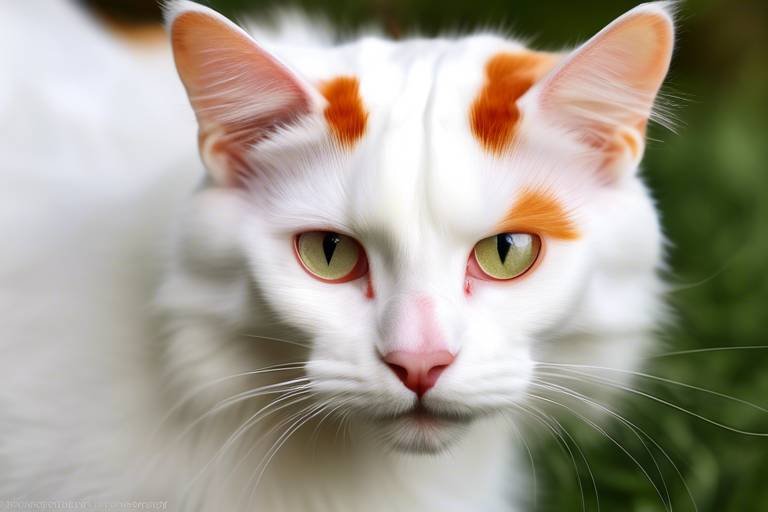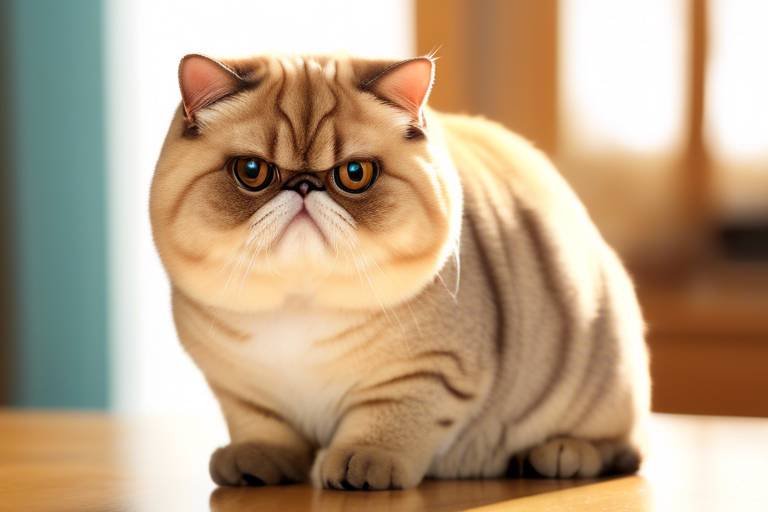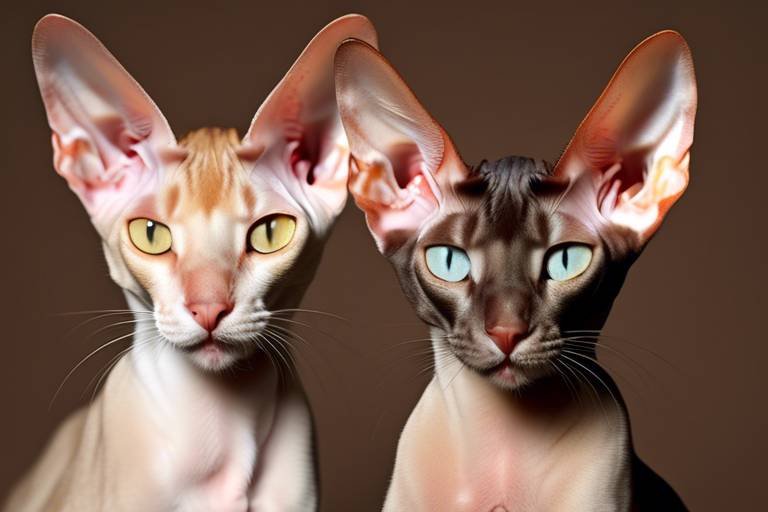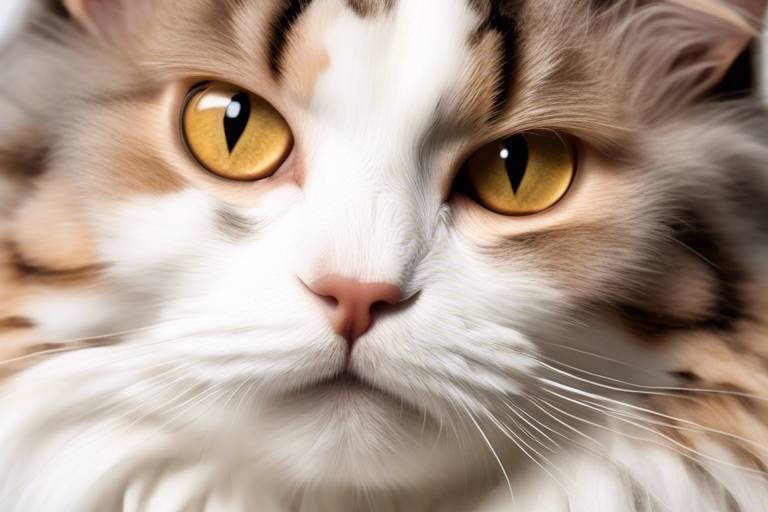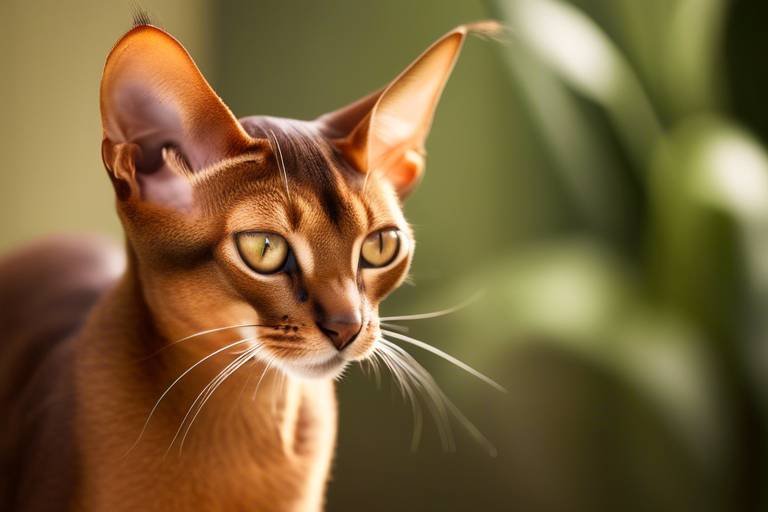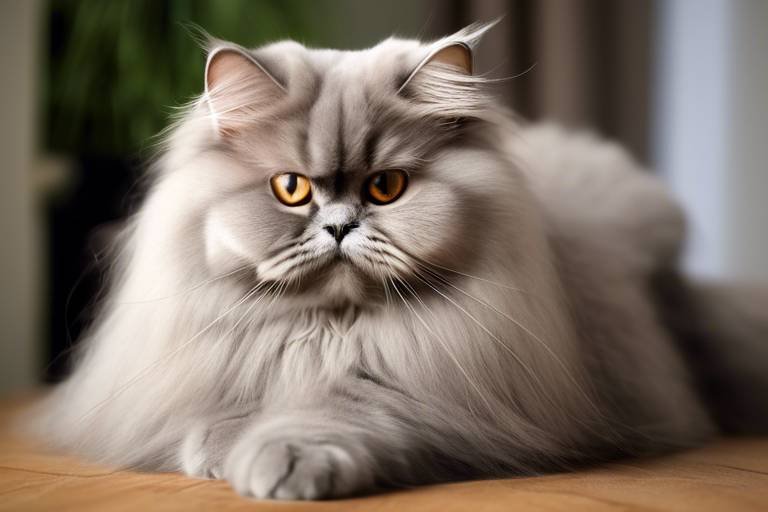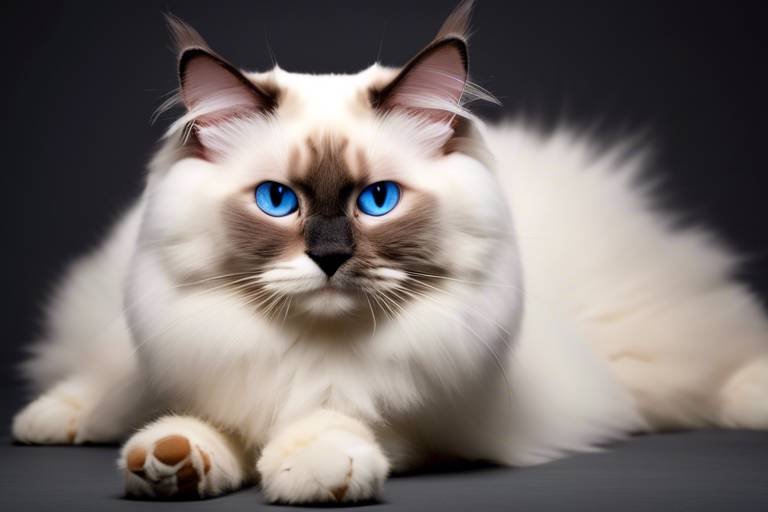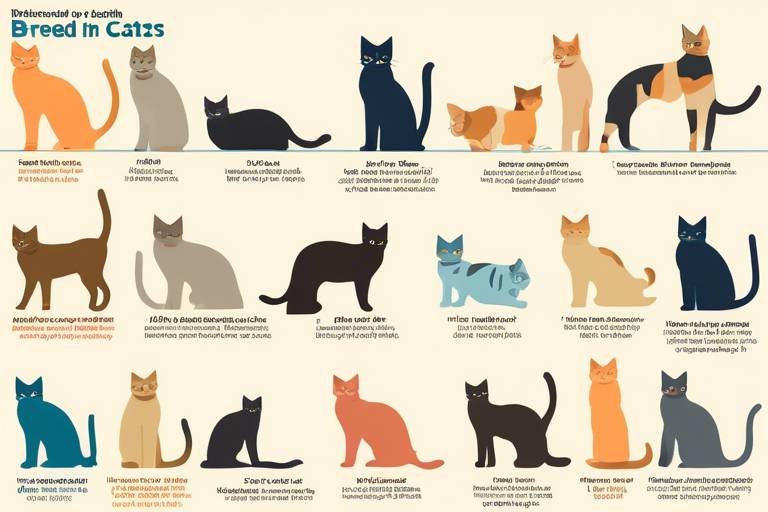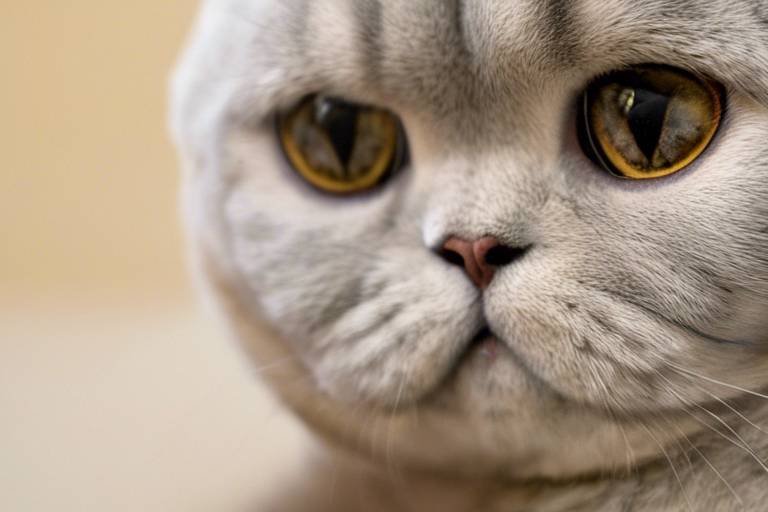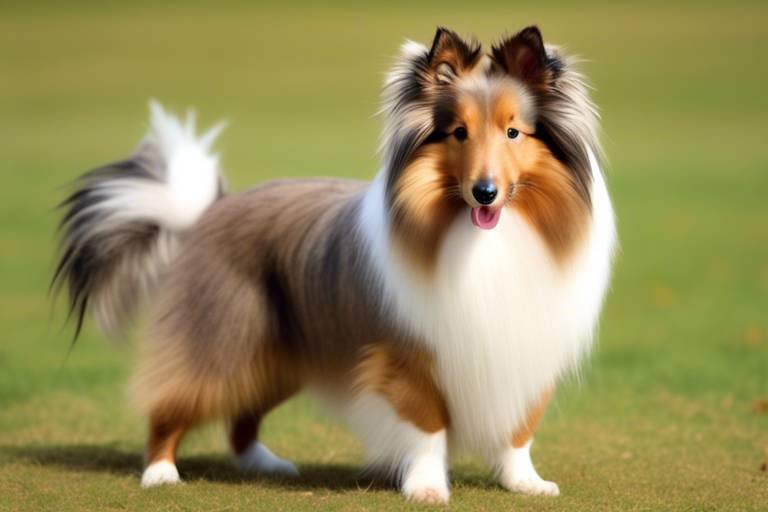The Characteristics of the Turkish Van
The Turkish Van is not just any cat; it is a breed that captures hearts with its unique traits and charming personality. Known for its striking appearance and playful demeanor, the Turkish Van is a true gem among feline companions. With a history that dates back centuries, this breed hails from the Lake Van region of Turkey, where it is celebrated for its distinctive coat and captivating presence. If you're considering adding a Turkish Van to your family, you're in for a delightful experience. Let's dive into what makes this breed so special!
The Turkish Van is known for its striking appearance, featuring a distinctive color pattern that sets it apart from other breeds. Typically, they have a white body with colored markings on the head and tail, creating a stunning contrast. Their coat is semi-longhaired, soft, and water-resistant, which is quite fitting given their love for swimming! Turkish Vans are muscular cats, boasting a robust build that gives them an athletic look. They often weigh between 10 to 20 pounds, making them a substantial presence in any household. Their eyes are particularly captivating, often appearing in shades of blue or amber, which adds to their enchanting allure.
When it comes to personality, the Turkish Van is renowned for its playful and affectionate nature. These cats are not just companions; they are family members who thrive on social interaction. They are known to be quite vocal, often communicating with their owners in a charming manner. Turkish Vans are intelligent and curious, making them excellent companions for families and individuals alike. They are also quite adaptable, which means they can fit into various living situations, whether it's a bustling household or a quieter environment.
One of the most delightful traits of the Turkish Van is their playfulness. These cats are natural entertainers, always on the lookout for their next adventure. Their love for interactive play makes them engaging companions, as they often enjoy games that challenge their agility and intelligence. Whether it's chasing after a feather toy or engaging in a spirited game of hide-and-seek, Turkish Vans bring joy and laughter to any home.
Understanding the types of toys that engage Turkish Vans can enhance their playtime significantly. They tend to favor toys that mimic prey, such as:
- Feather wands
- Laser pointers
- Interactive puzzle toys
- Catnip-filled toys
These toys not only stimulate their instincts but also provide the physical exercise they need to stay healthy and happy.
Turkish Vans thrive on social interaction, often forming strong bonds with their owners. They enjoy being part of the family activities and are known to follow their humans around the house. To foster these relationships, it's essential to spend quality time with your Turkish Van, engaging in play and providing plenty of affection. The more social interaction they receive, the happier they will be!
The intelligence of Turkish Vans makes them quick learners. They are not only capable of understanding commands but also enjoy engaging in problem-solving activities. This trait makes training them a rewarding experience, as they can learn tricks and even play fetch! Their inquisitive nature means they are always exploring their surroundings, which can sometimes lead to amusing antics that keep their owners entertained.
Proper care is essential for the well-being of Turkish Vans. Their grooming needs are relatively low-maintenance, thanks to their water-resistant coat. However, regular brushing helps reduce shedding and keeps their fur looking pristine. Additionally, a balanced diet is crucial for their health. Feeding them high-quality cat food that meets their nutritional needs will ensure they thrive.
Grooming is vital for maintaining the Turkish Van's beautiful coat. It's recommended to brush them at least once a week to keep their fur healthy and free from tangles. During shedding season, more frequent grooming may be necessary. It's also a great opportunity to bond with your cat, as many Turkish Vans enjoy the attention that comes with grooming.
A balanced diet is crucial for the health of Turkish Vans. They thrive on high-quality cat food that is rich in protein. It's best to feed them a mix of wet and dry food to keep them hydrated and satisfied. Additionally, establishing a feeding schedule can help maintain their energy levels and overall health.
Understanding common health issues in Turkish Vans can help owners provide better care. Regular veterinary check-ups are essential to monitor their health and catch any potential issues early on. Being aware of their health needs can lead to a longer, happier life for your furry friend.
Turkish Vans may be prone to certain health issues, including:
- Obesity
- Heart disease
- Genetic conditions
It's essential to keep an eye on their weight and ensure they receive regular exercise to prevent obesity and related health problems.
Regular veterinary visits are essential for monitoring the health of Turkish Vans. These visits allow for routine check-ups and vaccinations, which are crucial for preventing diseases. Establishing a good relationship with your veterinarian can help ensure your Turkish Van remains healthy and happy throughout their life.
Q: Do Turkish Vans like water?
A: Yes! Turkish Vans are known for their love of water and may even enjoy swimming.
Q: Are Turkish Vans good with children?
A: Absolutely! Their playful and affectionate nature makes them great companions for children.
Q: How much exercise do Turkish Vans need?
A: They require regular playtime and mental stimulation to keep them healthy and happy.
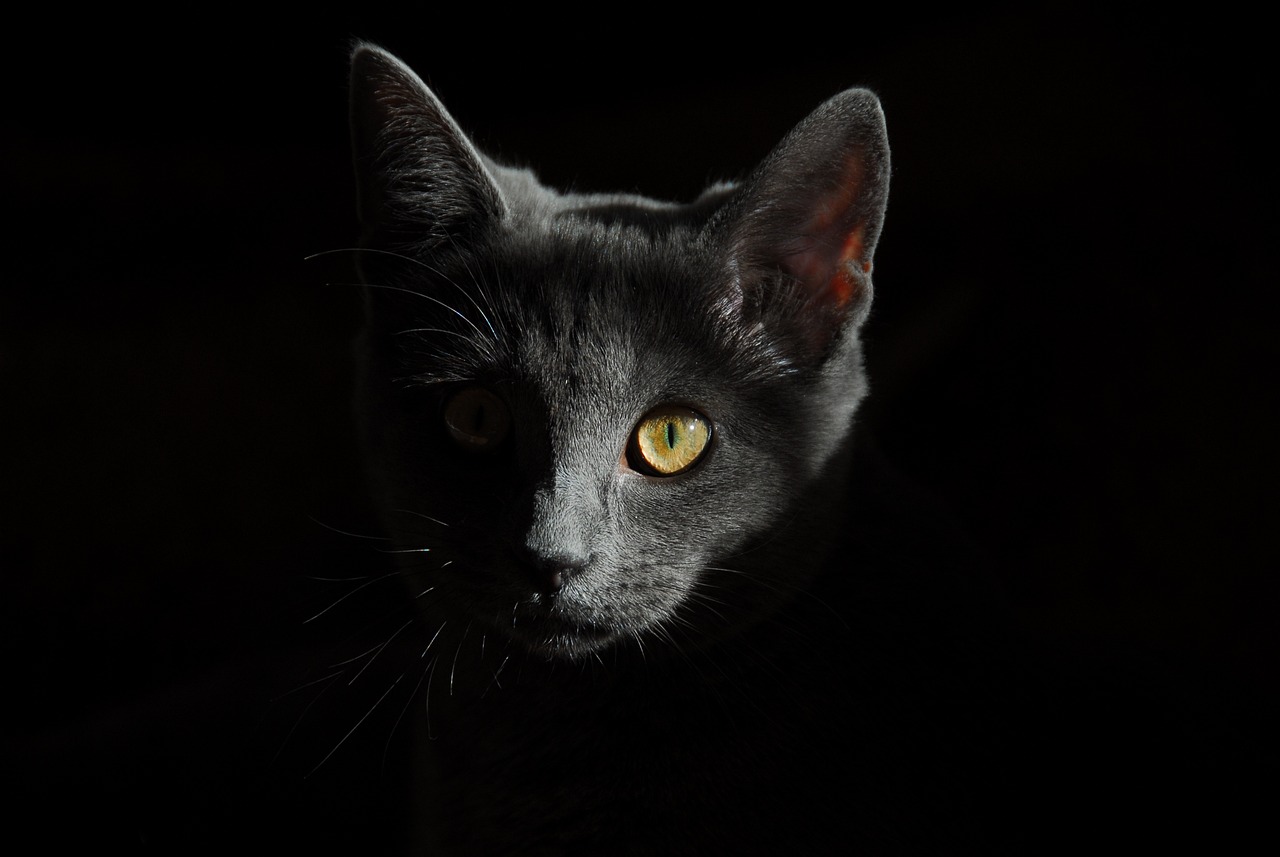
Physical Appearance
The Turkish Van is a breed that turns heads with its stunning and distinct appearance. With a muscular build, these cats are not just pretty faces; they are also quite athletic. Typically, a Turkish Van has a semi-longhaired coat that is soft and luxurious, which adds to their overall charm. One of the most striking features of this breed is its unique color pattern. While they can come in various colors, the classic Turkish Van is predominantly white with colored markings on the head and tail. This striking contrast makes them easily recognizable and highly sought after among cat lovers.
When it comes to size, Turkish Vans are considered medium to large cats. Adult males usually weigh between 10-20 pounds, while females tend to be slightly smaller, ranging from 7-12 pounds. Their strong, muscular bodies are complemented by a long, bushy tail that adds elegance to their overall appearance. Moreover, they have large, expressive eyes that can be blue, amber, or even one of each, a trait known as heterochromia. These captivating eyes not only enhance their beauty but also reflect their playful and curious nature.
Another fascinating aspect of the Turkish Van's appearance is their ear shape. They have large, tufted ears that sit high on their heads, giving them an alert and attentive look. Their facial structure is also noteworthy; they have a slightly rounded head with a well-defined chin, which adds to their regal appearance. In summary, the Turkish Van is a breed that embodies both beauty and strength, making them a favorite among cat enthusiasts.
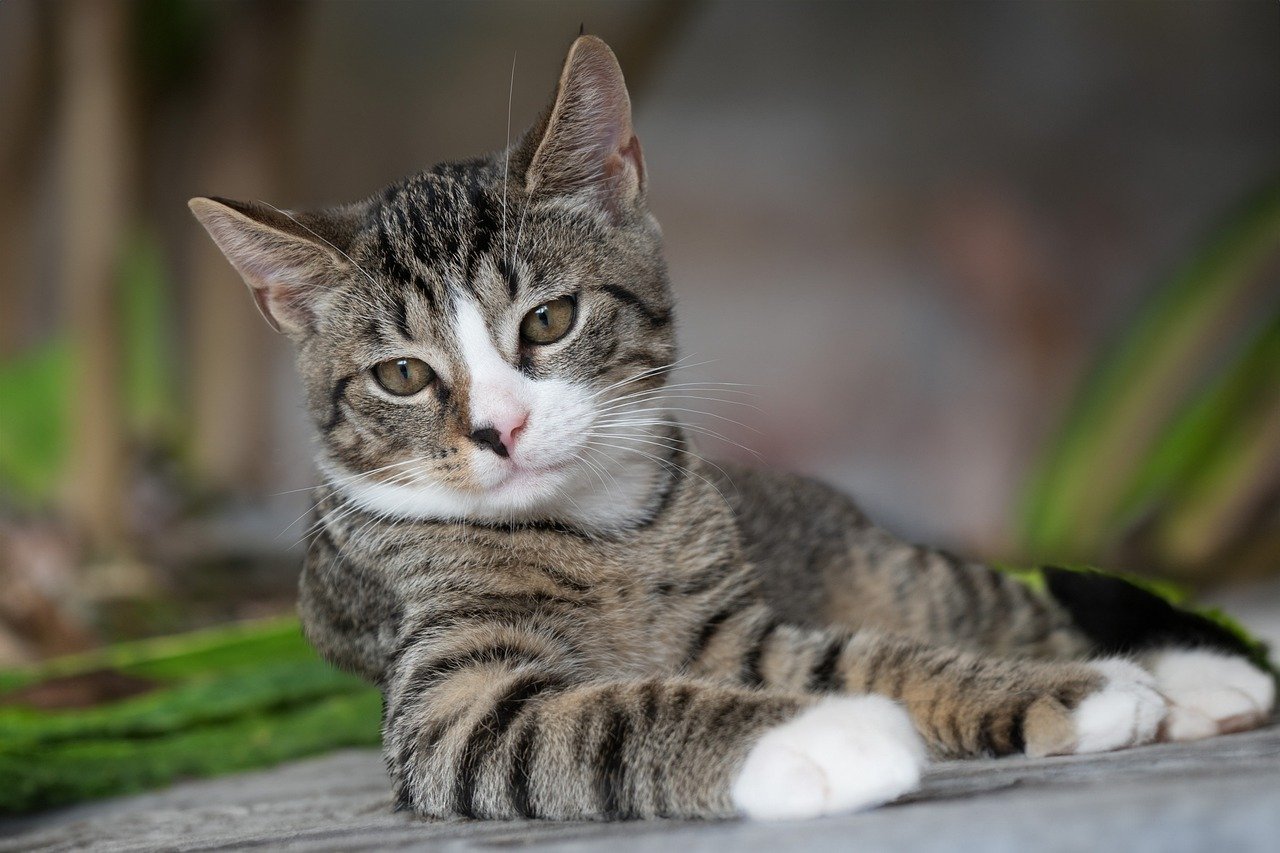
Temperament
The Turkish Van cat is not just a pretty face; they possess a uniquely engaging temperament that sets them apart from other breeds. These cats are known for their playful and affectionate nature, making them a delightful addition to any household. If you’re looking for a furry friend that’s both entertaining and loving, Turkish Vans might just be the purr-fect match for you!
One of the standout qualities of the Turkish Van is their playfulness. They are like little furry acrobats, always ready to leap into action. Whether it’s chasing after a feather toy or pouncing on a laser dot, their energy is contagious. It’s not uncommon to find them engaging in playful antics that can leave you in stitches. This playful spirit not only keeps them fit but also enriches their mental health, making them happy and well-adjusted companions.
Playfulness is a hallmark of the Turkish Van breed, making them entertaining companions. Their love for interactive play is not just a pastime; it’s a vital part of their daily routine. When you engage with them, you’ll notice how they respond with enthusiasm and curiosity. This breed thrives on mental and physical stimulation, which is why having a variety of toys is essential. They enjoy games that challenge their intellect and agility, such as:
- Feather wands
- Interactive puzzle toys
- Catnip-filled mice
These toys not only keep them active but also help strengthen the bond between you and your feline friend. Remember, a tired Turkish Van is a happy Turkish Van!
Understanding the types of toys that engage Turkish Vans can significantly enhance their playtime. They tend to favor toys that mimic the hunt, such as those that move unpredictably or have feathers. Here’s a quick table summarizing some popular toy choices:
| Toy Type | Description |
|---|---|
| Feather Wands | Great for interactive play, allowing you to engage in a fun chase. |
| Laser Pointers | Provides endless entertainment as they chase the elusive red dot. |
| Ball Toys | Encourages them to bat around and chase, promoting exercise. |
By rotating their toys and introducing new ones regularly, you can keep their interest piqued and their playtime exciting!
Turkish Vans are not just solitary creatures; they thrive on social interaction. These cats are known for forming strong bonds with their owners, often following them around the house like little shadows. They love to be involved in family activities and can often be found lounging next to their humans during downtime. Their affectionate nature means they enjoy cuddling and being petted, which can be incredibly soothing for both the cat and the owner.
To foster these relationships, it’s essential to spend quality time with your Turkish Van. Engaging in play, offering treats, and simply being present can help deepen your bond. They also tend to get along well with other pets, especially if introduced at a young age. Their friendly demeanor makes them a great fit for families with children and other animals.
Another fascinating aspect of the Turkish Van's temperament is their intelligence. These cats are quick learners and can master tricks and commands with relative ease. Their problem-solving abilities are impressive, and they often find creative ways to engage with their environment. This intelligence means they require mental stimulation, so incorporating training sessions and interactive toys into their routine is beneficial.
In conclusion, the Turkish Van is a breed that combines beauty with a vibrant and engaging personality. Their playful nature, need for social interaction, and intelligence make them exceptional companions. If you’re considering adding a Turkish Van to your family, be prepared for a lively, affectionate, and entertaining addition that will undoubtedly enrich your life!
Playfulness
The Turkish Van is not just another pretty face in the cat world; it’s a bundle of energy wrapped in a stunning coat! These cats are known for their playful nature, which truly sets them apart from other breeds. Imagine a cat that leaps like a gazelle and plays in water like a little otter—that's the Turkish Van for you! Their playful antics can entertain you for hours, often leaving you in stitches as they chase after feather toys or pounce on unsuspecting shadows.
One of the most delightful aspects of having a Turkish Van is their affinity for interactive play. They thrive on engagement and love to participate in games that challenge their agility and intelligence. Whether it's a simple game of fetch or an elaborate puzzle toy that dispenses treats, these cats are always up for a challenge. Their playful spirit isn't just about having fun; it’s also a vital part of their overall happiness. A bored Turkish Van can quickly become a mischievous one, so keeping their minds and bodies active is essential.
Here are some of the favorite activities that Turkish Vans adore:
- Chasing Toys: They love to chase after anything that moves, from laser pointers to feather wands.
- Water Play: Unlike many cats, Turkish Vans are known for their love of water. You might find them splashing around in their water bowl or even joining you in the shower!
- Climbing: They enjoy climbing to high places, so providing them with a cat tree can be a great way to satisfy their adventurous spirit.
In addition to these activities, it's crucial to rotate their toys regularly to keep things fresh and exciting. Just like how we get bored with the same old routine, your Turkish Van will appreciate new challenges and toys that stimulate their natural instincts. Investing in a variety of toys, from interactive puzzles to simple balls of yarn, can create an enriching environment that fosters their playful side.
Ultimately, the playful nature of the Turkish Van not only makes them entertaining companions but also enhances their bond with you. Engaging in playtime can be a wonderful way to connect with your feline friend, allowing you to witness their unique personality shine through. So, if you’re considering adding a Turkish Van to your family, get ready for a delightful journey filled with laughter, love, and plenty of playful moments!
Favorite Toys
When it comes to keeping your Turkish Van entertained, the right toys can make all the difference. These cats are not just beautiful; they are incredibly playful and need stimulation to keep their minds sharp and their bodies active. Think of their playtime as a mini workout session—a chance for them to flex their muscles and chase their wild instincts. So, what toys should you consider for your Turkish Van? Let's dive into some favorites!
Turkish Vans love toys that mimic the thrill of the hunt. Feather wands, for example, are a fantastic choice. They tap into the cat’s natural predatory instincts, allowing them to leap and pounce as if they were chasing real prey. Just imagine your Turkish Van, eyes wide and tail twitching, as they stalk that feather with all the grace of a lion on the prowl! Not only does this provide physical exercise, but it also engages their sharp minds.
Another popular option is interactive puzzle toys. These toys challenge your Turkish Van to think critically and solve problems, which can be incredibly rewarding for them. You might find them pushing pieces around with their paws or even using their noses to figure out how to get to the treats hidden inside. It’s like a little brain workout, and just like us, they thrive on mental challenges!
Here’s a quick rundown of some favorite toy types for Turkish Vans:
- Feather Wands: Perfect for engaging their hunting instincts.
- Interactive Puzzle Toys: Great for mental stimulation and problem-solving.
- Catnip Toys: Many Turkish Vans go wild for catnip, making these a fantastic addition to their toy box.
- Laser Pointers: These can provide endless entertainment as they chase that elusive red dot.
Don’t forget about DIY toys! Sometimes the simplest things can bring the most joy. A crumpled piece of paper or a cardboard box can turn into hours of fun. Just watch your Turkish Van as they explore, pounce, and dive into their makeshift playground. It’s a reminder that sometimes, the best toys are the ones that spark their imagination.
In summary, providing a variety of engaging toys is essential for the well-being of your Turkish Van. Not only do these toys help them stay active and healthy, but they also foster a strong bond between you and your furry friend as you play together. So go ahead, stock up on those toys, and prepare for some fun-filled play sessions!
Q: How often should I play with my Turkish Van?
A: Ideally, you should engage in play sessions with your Turkish Van at least once or twice a day. These sessions can vary in length, but even 15-20 minutes of interactive play can be beneficial.
Q: Can Turkish Vans play alone?
A: While Turkish Vans are social cats and enjoy interaction, they can entertain themselves if provided with stimulating toys. However, regular interaction with their owners is crucial for their emotional well-being.
Q: Are there any toys I should avoid?
A: It's best to avoid toys with small parts that could be swallowed or strings that could become tangled. Always supervise playtime, especially with new toys, to ensure safety.
Social Interaction
Turkish Vans are not just cats; they are social butterflies of the feline world! Their need for companionship is as strong as their love for play. These cats thrive on interaction and are known to form deep bonds with their human families. Whether you’re lounging on the couch or bustling around the kitchen, expect your Turkish Van to be right by your side, seeking affection and attention. They have a unique way of communicating their needs, often through gentle nudges or soft meows that tug at your heartstrings.
One of the most fascinating aspects of their social behavior is their ability to adapt to different environments and family dynamics. Turkish Vans are generally good with children and can even get along well with other pets, provided they are introduced properly. Their playful nature makes them a joy to have around, as they are always up for a game or a cuddle session. They enjoy being part of the family action and will often follow you from room to room, just to be included in whatever you're doing.
To foster a strong bond with your Turkish Van, consider engaging in interactive activities that stimulate their mind and body. These can include:
- Playing fetch with small balls or toys
- Using feather wands or laser pointers for chase
- Setting up puzzle toys that require problem-solving to access treats
By providing a variety of engaging activities, you not only keep your Turkish Van entertained but also strengthen your relationship with them. Remember, these cats are intelligent and curious, so keeping their minds active is just as important as physical play. They love to explore, so creating a safe environment where they can investigate their surroundings will keep them happy and fulfilled.
In essence, the Turkish Van's need for social interaction is a key component of their well-being. By making time for play, affection, and exploration, you’ll not only enrich their lives but also create a harmonious home filled with love and laughter. So, if you're considering adding a Turkish Van to your family, be prepared for a delightful companion who will shower you with affection and joy!
Here are some common questions about the social interaction of Turkish Vans:
- Do Turkish Vans get along with other pets? Yes, they tend to be social and can adapt well to living with other pets if introduced properly.
- How can I keep my Turkish Van entertained? Engage them with interactive toys, playtime, and puzzle games to stimulate their minds and keep them active.
- Do Turkish Vans require a lot of attention? Yes, they thrive on social interaction and enjoy being involved in family activities.
Intelligence
The intelligence of the Turkish Van cat is nothing short of remarkable. These felines are not just beautiful; they are also incredibly smart and curious creatures. Their sharp minds allow them to learn quickly and adapt to various situations, making them a joy to have around. Imagine having a pet that can understand your commands and even perform tricks! This breed is known for its problem-solving abilities, which can be both entertaining and impressive.
One of the most fascinating aspects of a Turkish Van's intelligence is their ability to engage in interactive play. They thrive on mental stimulation, which is why it’s essential to provide them with toys that challenge their intellect. For instance, puzzle toys that dispense treats can keep them occupied for hours, turning playtime into a fun learning experience. Additionally, they are known to enjoy games that involve chasing and pouncing, which not only sharpens their physical skills but also keeps their minds active.
Furthermore, Turkish Vans are highly social animals that enjoy interacting with their human companions. Their intelligence shines through in their ability to read human emotions and respond accordingly. If you’re feeling down, you might find your Turkish Van curling up beside you, offering comfort and companionship. This empathetic nature makes them excellent family pets, as they can bond closely with both adults and children alike.
Training a Turkish Van can be a rewarding experience due to their eagerness to learn. They respond well to positive reinforcement, such as treats and praise. This method not only encourages them to follow commands but also strengthens the bond between you and your furry friend. Here are some common commands that Turkish Vans can learn:
- Sit
- Come
- High Five
- Fetch
In conclusion, the intelligence of the Turkish Van cat is a combination of their playful nature, social behavior, and ability to learn quickly. This breed is not just a pet; they are companions that can engage in meaningful interactions and provide endless entertainment. If you're considering adding a Turkish Van to your family, be prepared for an intelligent and affectionate cat that will keep you on your toes!
Q: Are Turkish Vans easy to train?
A: Yes, Turkish Vans are quite intelligent and respond well to positive reinforcement, making training a fun and rewarding experience.
Q: Do Turkish Vans require a lot of mental stimulation?
A: Absolutely! They thrive on interactive play and mental challenges, so providing engaging toys and activities is essential.
Q: How do Turkish Vans interact with children?
A: Turkish Vans are known for their friendly and affectionate nature, making them great companions for children. They often form strong bonds with family members.
Q: Can Turkish Vans be left alone for long periods?
A: While they can be independent, Turkish Vans do enjoy social interaction and may become bored or anxious if left alone for too long.
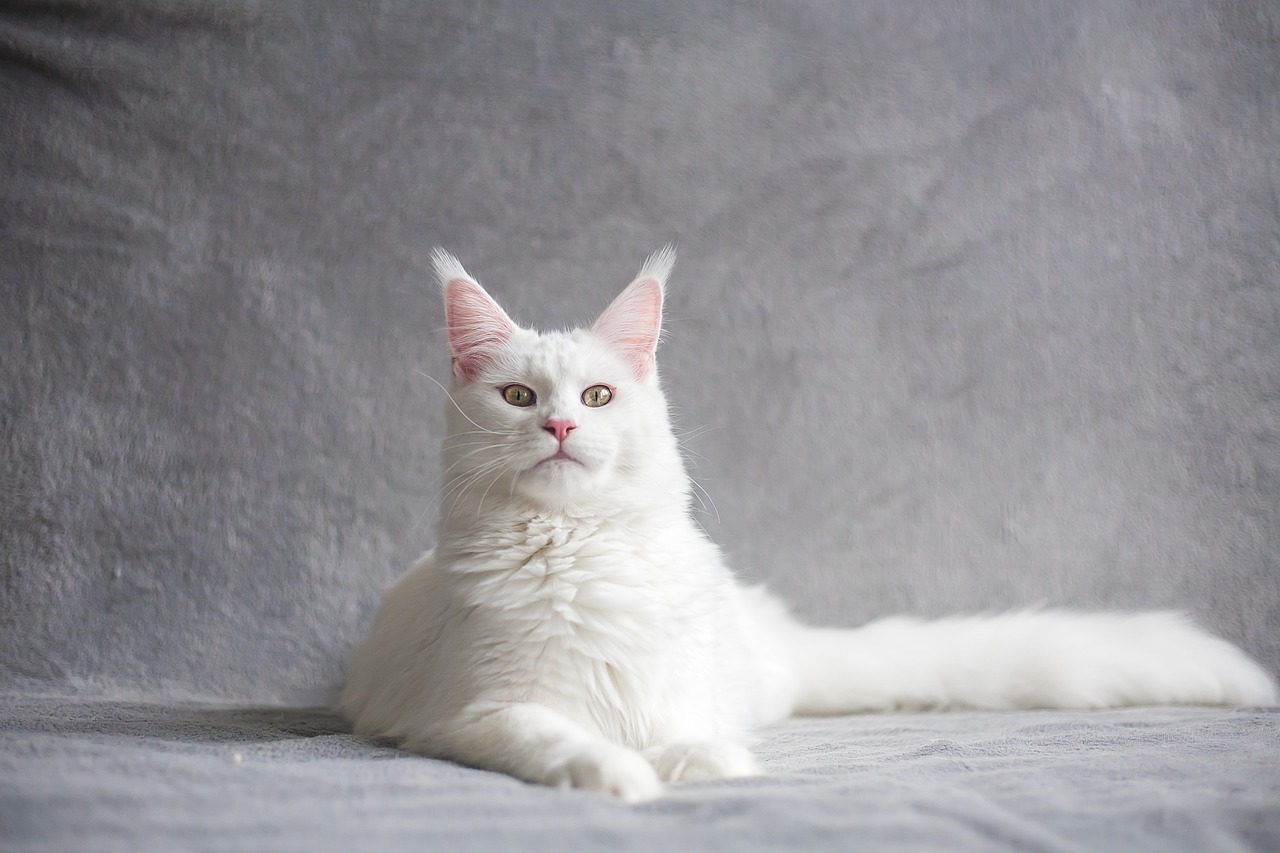
Care Requirements
Caring for a Turkish Van cat goes beyond just providing food and shelter; it involves a holistic approach to their well-being. These cats are known for their unique personalities and physical characteristics, but to keep them happy and healthy, you need to pay attention to their grooming, diet, and health needs. Let's dive into the essentials of Turkish Van care that every potential owner should know.
First and foremost, grooming plays a crucial role in maintaining the Turkish Van's stunning coat. Their semi-long, water-resistant fur is not just beautiful; it also requires regular upkeep to prevent matting and ensure it remains in top condition. Ideally, you should brush your Turkish Van at least once a week. During shedding seasons, which typically occur in spring and fall, you might need to increase grooming to a few times a week. Using a quality slicker brush can help remove loose hair and dirt effectively. Remember, grooming isn’t just about aesthetics; it’s a bonding experience that can strengthen your relationship with your furry friend.
Next up is their dietary preferences. Turkish Vans are active and playful, which means they need a balanced diet rich in protein to support their energy levels. Look for high-quality cat food that lists meat as the first ingredient. It’s also important to consider their age, weight, and activity level when choosing their food. For example, kittens need more calories than adult cats, while senior cats might require a special diet to maintain their health. Here’s a quick overview of dietary needs based on life stages:
| Life Stage | Dietary Needs |
|---|---|
| Kittens | High protein, calorie-dense food for growth |
| Adults | Balanced diet with protein, fats, and carbohydrates |
| Seniors | Specialized diet for joint health and lower calories |
Hydration is another key aspect of their care. Always ensure that your Turkish Van has access to fresh, clean water. Some cats prefer running water, so consider investing in a cat water fountain to encourage them to drink more.
Finally, let’s talk about health considerations. Regular veterinary check-ups are essential for monitoring the health of your Turkish Van. These visits can help catch any potential health issues early on. Keep an eye out for common health problems such as obesity, dental disease, and genetic conditions like hypertrophic cardiomyopathy. Routine vaccinations and preventative care will not only keep your cat healthy but also save you from unexpected veterinary bills down the line.
In summary, taking care of a Turkish Van involves a mix of grooming, proper nutrition, and regular health check-ups. By understanding and addressing these care requirements, you’ll be well on your way to ensuring a happy and healthy life for your feline friend.
- How often should I groom my Turkish Van?
Brush at least once a week, more frequently during shedding seasons. - What type of food is best for my Turkish Van?
High-quality cat food with meat as the first ingredient is recommended. - Do Turkish Vans need special health care?
Regular vet check-ups and vaccinations are essential to monitor their health.
Grooming Needs
The Turkish Van is not just a pretty face; their stunning coat requires some **dedicated grooming** to keep it looking its best. With their semi-long hair, these cats are often mistaken for high-maintenance breeds, but the truth is, their grooming needs are quite manageable with the right approach. Regular grooming sessions not only help maintain their luxurious fur but also provide an excellent opportunity for bonding with your feline friend. It's like a spa day for them, and who doesn’t love a little pampering?
Generally, it’s recommended to brush your Turkish Van at least once a week. This helps to remove any loose hair and prevent matting. However, during shedding seasons, which typically occur in the spring and fall, you might want to increase the frequency to a few times a week. Using a **wide-toothed comb** or a **slicker brush** can be particularly effective in managing their coat. Think of it as untangling a beautiful piece of art; you want to be gentle yet thorough.
Moreover, while grooming, it's essential to check for any **skin irritations or parasites**. Turkish Vans are generally healthy, but like any breed, they can be susceptible to certain skin conditions. Regular grooming allows you to keep an eye on their skin health, making it easier to catch any potential issues early on. It’s a bit like being a detective, searching for clues that might indicate something is off.
Now, let’s talk about their **bath time**. While Turkish Vans are known for their love of water, it doesn’t mean they need frequent baths. In fact, unless they get into something particularly messy, a bath every few months should suffice. When you do bathe them, use a gentle cat shampoo and make sure to rinse thoroughly. It’s essential to keep their skin oils intact, as these oils help maintain the health of their coat.
Finally, don’t forget about their **nails** and **ears**. Regularly trimming your Turkish Van’s nails helps prevent overgrowth and potential injury. Aim for a trim every couple of weeks. As for their ears, a quick weekly check can help keep them clean and free of wax buildup. If you notice any excessive dirt or odor, it might be time for a gentle cleaning with a vet-recommended solution.
In summary, grooming your Turkish Van is not just about maintaining their beauty; it's a vital part of their overall health and well-being. With a little time and effort, you’ll not only keep them looking fabulous but also strengthen the bond you share. After all, a well-groomed cat is a happy cat!
- How often should I groom my Turkish Van?
It's recommended to groom them at least once a week, increasing frequency during shedding seasons. - Do Turkish Vans require baths?
They do not need frequent baths; a bath every few months is usually sufficient unless they get particularly dirty. - What tools should I use for grooming?
A wide-toothed comb and slicker brush are ideal for maintaining their coat. - How can I tell if my cat's skin is healthy?
Regular grooming helps you check for irritations or parasites, ensuring their skin remains healthy.
Dietary Preferences
The dietary preferences of the Turkish Van are crucial for maintaining their overall health and vitality. Just like humans, our furry friends need a balanced diet that caters to their specific needs. Turkish Vans are known for their energetic and playful nature, which means they require a diet rich in protein to fuel their activities. High-quality cat food that lists meat as the primary ingredient is essential. You might wonder, "What exactly should I feed my Turkish Van?" Well, let's break it down!
When it comes to their diet, Turkish Vans benefit from both dry kibble and wet food. Dry food helps to maintain dental health, while wet food provides hydration and can be more palatable for some cats. A combination of both can be ideal. However, it’s important to choose products that are free from fillers and artificial additives. Look for brands that use real meat, whole grains, and vegetables. Some popular options include:
- High-protein dry kibble
- Canned food with real meat
- Raw or freeze-dried food (with caution and proper preparation)
Feeding schedules also play a significant role in a Turkish Van's diet. Many owners find that feeding their cats twice a day works well, but some cats prefer to graze throughout the day. It’s essential to monitor their weight and adjust portion sizes accordingly, as Turkish Vans can be prone to obesity if overfed. A good rule of thumb is to follow the feeding guidelines on the food packaging and consult with your veterinarian for personalized advice.
Additionally, fresh water should always be available, as hydration is key to their health. Some Turkish Vans may even enjoy drinking from running water, so consider investing in a cat water fountain to encourage them to drink more. Remember, a happy and healthy Turkish Van is one that is well-fed and properly cared for!
- What is the best type of food for a Turkish Van?
High-quality cat food with a meat-based protein is ideal. Look for options that contain real meat as the first ingredient. - How often should I feed my Turkish Van?
Feeding them twice a day is common, but some owners prefer free feeding. Monitor their weight and adjust portions accordingly. - Can I give my Turkish Van treats?
Yes! Just ensure that treats are given in moderation and do not exceed 10% of their daily caloric intake. - Is wet food better than dry food for Turkish Vans?
Both have their benefits. A mix of wet and dry food can provide a balanced diet and keep your cat hydrated.
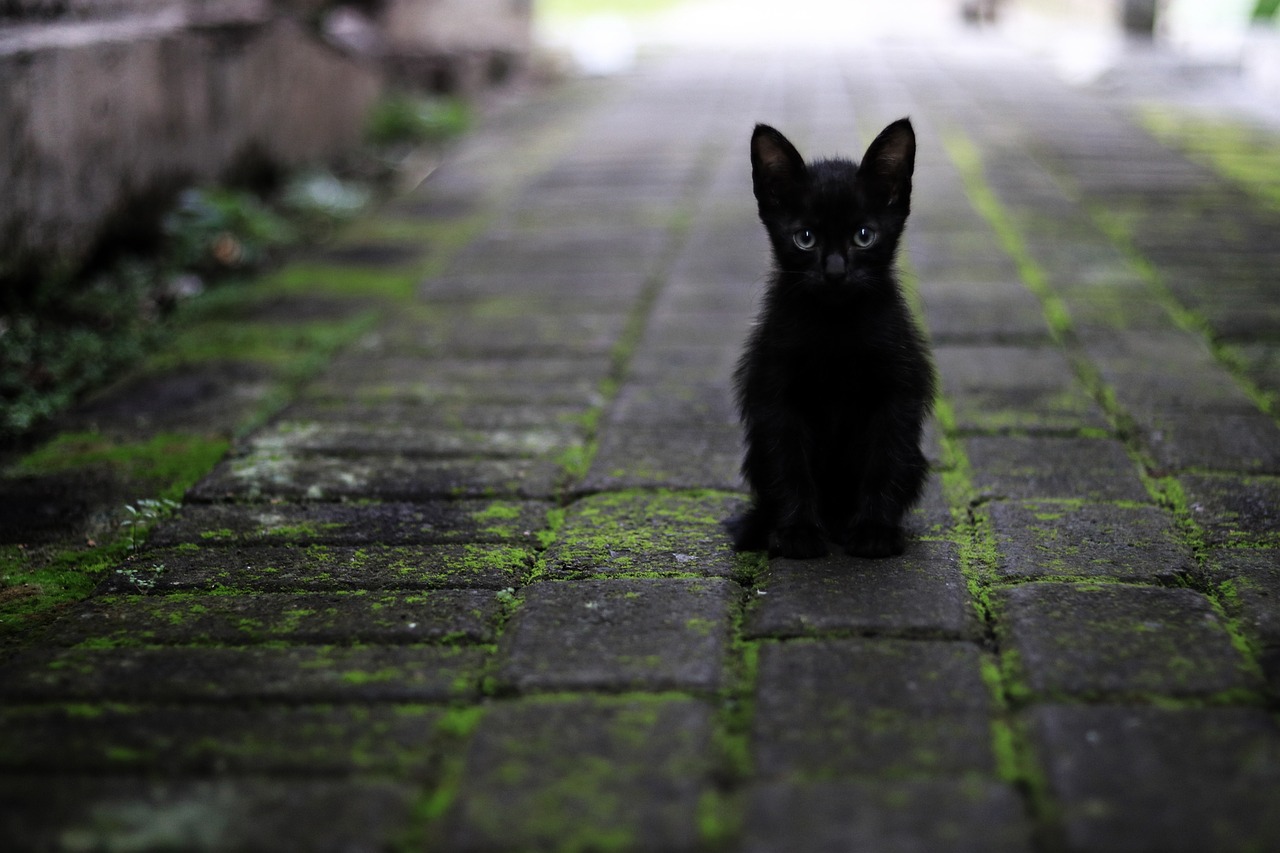
Health Considerations
When it comes to the Turkish Van, understanding their health considerations is crucial for any potential owner. These cats are not just beautiful; they are also unique creatures that have specific health needs. Just like any other breed, Turkish Vans can be prone to certain genetic conditions, and being aware of these can help you provide the best care possible. Regular veterinary check-ups play a vital role in monitoring their health and ensuring they lead long, happy lives.
One of the common health issues that Turkish Vans may encounter is hypertrophic cardiomyopathy (HCM), a condition that affects the heart muscle and can lead to serious complications if left untreated. Symptoms might not be immediately apparent, so it's essential to keep an eye out for any changes in behavior or energy levels. Additionally, Turkish Vans can be susceptible to kidney disease, which can develop as they age. Regular vet visits can help catch these issues early, allowing for timely intervention.
Another aspect to consider is the breed's overall weight management. Turkish Vans are known for their playful nature, which can sometimes lead to overeating if not monitored. It's important to provide a balanced diet and keep an eye on their weight. Obesity can lead to a range of health issues, including diabetes and joint problems. Therefore, ensuring they get enough exercise through play and interaction is key.
In terms of preventive care, it's essential to establish a routine that includes:
- Annual veterinary check-ups
- Regular vaccinations
- Dental cleanings to prevent oral diseases
These practices not only help in early detection of potential health issues but also keep your Turkish Van feeling their best. Remember, a healthy cat is a happy cat, and your furry friend deserves all the love and care you can provide.
Q: How often should I take my Turkish Van to the vet?
A: It's recommended to take your Turkish Van for an annual check-up, but if they have any existing health issues or concerns, more frequent visits may be necessary.
Q: What are the signs of common health issues in Turkish Vans?
A: Watch for changes in behavior, such as lethargy, changes in appetite, or unusual vocalizations. Regular monitoring will help you catch any potential issues early.
Q: What should I feed my Turkish Van to maintain their health?
A: A balanced diet rich in protein is ideal. Consult with your veterinarian for specific dietary recommendations based on your cat's age, weight, and health status.
Q: Are Turkish Vans prone to any hereditary conditions?
A: Yes, they can be prone to conditions like hypertrophic cardiomyopathy and kidney disease. Regular vet check-ups can help monitor and manage these risks.
Common Health Issues
The Turkish Van, while generally known for its robust health and playful demeanor, can be susceptible to certain health issues that every potential owner should be aware of. Just like any other breed, understanding these conditions can help you provide the best care possible for your furry friend. Some common health concerns include hypertrophic cardiomyopathy, which is a heart condition that can affect many cats, including Turkish Vans. This condition often goes unnoticed until it becomes severe, making it vital for owners to be vigilant about their cat's health.
Another issue that can affect Turkish Vans is obesity. These cats have a tendency to overeat, especially if they are not provided with enough physical activity. Obesity can lead to a myriad of health problems, including diabetes and joint issues. Therefore, it’s essential to monitor their diet and ensure they engage in regular play and exercise to maintain a healthy weight.
Additionally, Turkish Vans are prone to certain genetic conditions that can affect their overall health. For instance, they may be at risk for certain skin conditions due to their unique coat, which requires regular grooming. Neglecting their grooming needs can lead to matting and skin irritations. It's important to establish a grooming routine that not only keeps their coat looking fabulous but also helps prevent any potential skin issues.
Moreover, regular veterinary check-ups can help in early detection of these health issues. Here’s a quick overview of some common health issues in Turkish Vans:
| Health Issue | Description | Preventive Measures |
|---|---|---|
| Hypertrophic Cardiomyopathy | A heart condition that can lead to heart failure. | Regular vet check-ups and monitoring for symptoms. |
| Obesity | Excess weight can lead to diabetes and joint problems. | Balanced diet and regular exercise. |
| Skin Conditions | Potential irritations due to matting and lack of grooming. | Regular grooming and skin checks. |
By being aware of these common health issues and taking proactive steps, you can ensure that your Turkish Van lives a long, healthy, and happy life. Remember, a well-cared-for cat is a happy cat!
- What is the lifespan of a Turkish Van? Turkish Vans typically live between 12 to 17 years, depending on their health and care.
- Do Turkish Vans require special grooming? Yes, their unique coat requires regular grooming to prevent matting and skin issues.
- Are Turkish Vans good with children and other pets? Yes, they are known for their friendly and social nature, making them great companions for families.
- What should I feed my Turkish Van? A balanced diet rich in protein is essential for their health. Consult your vet for specific dietary recommendations.
Regular Vet Check-ups
When it comes to keeping your Turkish Van healthy, regular veterinary check-ups are absolutely essential. Just like we humans need our annual health screenings, these furry companions require routine visits to the vet to ensure they are in tip-top shape. But why is this so crucial? Well, Turkish Vans, with their playful nature and striking appearance, can sometimes hide health issues until they become serious. Regular check-ups serve as a proactive measure, allowing you to catch potential problems before they escalate.
During a typical vet visit, your cat will undergo a thorough examination. The veterinarian will assess their overall health, checking for any signs of illness or discomfort. This includes examining their coat, eyes, ears, and teeth. But that's not all! Regular check-ups also involve vaccinations, which are vital for preventing diseases that could pose a threat to your beloved pet. For Turkish Vans, staying up-to-date on vaccinations is key to ensuring a long and healthy life.
Moreover, routine visits provide an opportunity for you to discuss any behavioral changes or concerns you might have noticed at home. Do they seem less active than usual? Are they eating differently? These insights can be invaluable to your vet, helping them to tailor care specifically for your Turkish Van. And let’s not forget about the importance of dental care! Many owners overlook oral health, but it’s a significant aspect of your cat’s overall well-being. Your vet can provide guidance on how to maintain your cat's dental hygiene, which is crucial for preventing more serious health issues down the line.
Here’s a quick overview of what to expect during a regular vet check-up:
| Check-up Component | Description |
|---|---|
| Physical Exam | A thorough examination of your cat's body and vital signs. |
| Vaccinations | Updating necessary vaccinations to protect against diseases. |
| Dental Check | Assessment of oral health and recommendations for care. |
| Behavioral Consultation | Discussion of any changes in behavior or health concerns. |
In summary, making regular vet check-ups a priority is one of the best things you can do for your Turkish Van. Not only does it help in early detection of health issues, but it also fosters a stronger relationship between you and your vet, ensuring that your cat receives the best possible care. So, don’t wait until something seems off—schedule that appointment and keep your feline friend happy and healthy!
- How often should I take my Turkish Van to the vet? It is generally recommended to take your cat for a check-up at least once a year, but senior cats or those with health issues may need more frequent visits.
- What vaccinations does my Turkish Van need? Common vaccinations include rabies, feline distemper, and feline leukemia. Your vet will recommend a vaccination schedule based on your cat's age and lifestyle.
- How can I tell if my Turkish Van is sick? Look for changes in behavior, appetite, or litter box habits. If you notice anything unusual, it’s best to consult your vet.
Frequently Asked Questions
- What is the typical size of a Turkish Van?
The Turkish Van is a medium to large breed, with males typically weighing between 12 to 20 pounds and females ranging from 8 to 12 pounds. Their muscular build and strong bone structure contribute to their impressive size.
- Are Turkish Vans good with children and other pets?
Absolutely! Turkish Vans are known for their friendly and social nature. They often bond well with children and can coexist peacefully with other pets, making them a great addition to family households.
- How much grooming do Turkish Vans require?
Turkish Vans have a semi-long coat that requires regular grooming, about once a week, to prevent matting and to keep their fur healthy. During shedding seasons, you might want to increase the frequency to twice a week.
- What type of diet is best for a Turkish Van?
A balanced diet consisting of high-quality cat food is essential for Turkish Vans. Look for options that include real meat as the first ingredient, and consult your vet for specific dietary recommendations based on your cat's age and health.
- Do Turkish Vans have any common health issues?
While generally healthy, Turkish Vans can be prone to certain genetic conditions, such as hypertrophic cardiomyopathy. Regular veterinary check-ups can help monitor their health and catch any potential issues early.
- How intelligent are Turkish Vans?
Turkish Vans are quite intelligent and curious. They enjoy engaging in problem-solving activities and can learn commands quickly. This intelligence also makes them more interactive and playful companions.
- What are the favorite toys for Turkish Vans?
Turkish Vans love toys that stimulate their playful instincts, such as feather wands, laser pointers, and interactive puzzle toys. These keep them active and mentally engaged, which is essential for their happiness.
- How often should I take my Turkish Van to the vet?
It's recommended to take your Turkish Van for a veterinary check-up at least once a year. Regular visits help ensure they stay healthy and up-to-date with vaccinations, which is crucial for their well-being.

